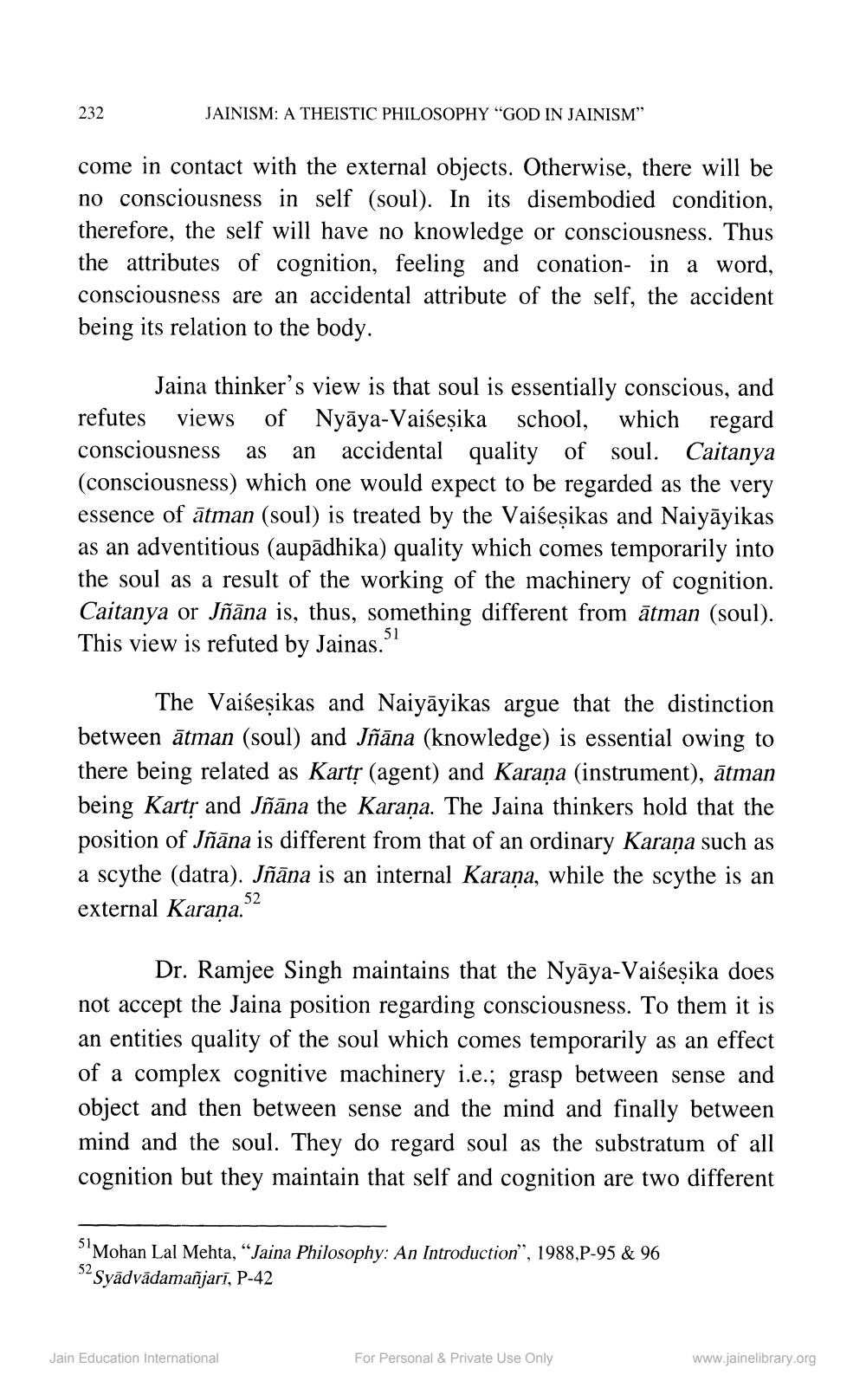________________
232
JAINISM: A THEISTIC PHILOSOPHY “GOD IN JAINISM”
come in contact with the external objects. Otherwise, there will be no consciousness in self (soul). In its disembodied condition, therefore, the self will have no knowledge or consciousness. Thus the attributes of cognition, feeling and conation- in a word, consciousness are an accidental attribute of the self, the accident being its relation to the body.
Jaina thinker's view is that soul is essentially conscious, and refutes views of Nyāya-Vaišeșika school, which regard consciousness as an accidental quality of soul. Caitanya (consciousness) which one would expect to be regarded as the very essence of ātman (soul) is treated by the Vaišeșikas and Naiyāyikas as an adventitious (aupādhika) quality which comes temporarily into the soul as a result of the working of the machinery of cognition. Caitanya or Jñāna is, thus, something different from ātman (soul). This view is refuted by Jainas.'
The Vaiseșikas and Naiyāyikas argue that the distinction between ātman (soul) and Jñāna (knowledge) is essential owing to there being related as KartỊ (agent) and Karaṇa (instrument), ātman being Kart; and Jñāna the Karana. The Jaina thinkers hold that the position of Jñāna is different from that of an ordinary Karaṇa such as a scythe (datra). Iñāna is an internal Karaņa, while the scythe is an external Karaņa. 2
Dr. Ramjee Singh maintains that the Nyāya-Vaiseșika does not accept the Jaina position regarding consciousness. To them it is an entities quality of the soul which comes temporarily as an effect of a complex cognitive machinery i.e.; grasp between sense and object and then between sense and the mind and finally between mind and the soul. They do regard soul as the substratum of all cognition but they maintain that self and cognition are two different
"Mohan Lal Mehta, “Jaina Philosophy: An Introduction", 1988,P-95 & 96 »Syādvādamañjari, P-42
Jain Education International
For Personal & Private Use Only
www.jainelibrary.org




